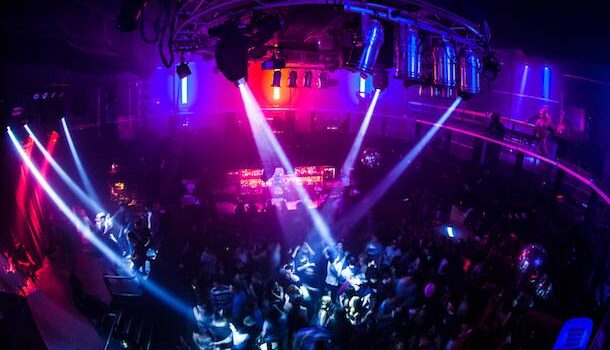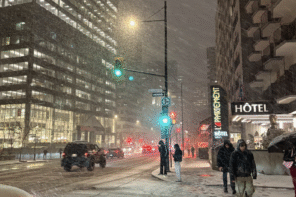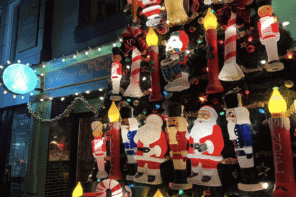In 1989, Ray Oldenburg published his book “The Great Good Place” where he coined the term “Third Place”: a social environment that is not the home or workplace where social interaction and connections can be fostered. Oldenburg argues that Third Places are essential for developing a sense of place and civil engagement.
Café Campus is a bar and discotheque founded in 1967 that some refer to as the “community watering hole” of Milton-Parc and the Plateau, and others call “the location where they want their ashes to be scattered.” It has remained standing for generations, with its presence enduring through countless social revolutions, ranging from the Quiet Revolution to the monumental establishment of the Lettuce Club.
Nestled at the corner of Rue Prince-Arthur E and Sainte Dominique St., Café is located on a pedestrian street, an urbanist’s dream, which promotes social and environmental sustainability. The bar’s proximity to student residences and accessible access to public transportation in the form of the Metro, buses, and Bixi bikes encourages sustainable active transport. However, most students will inevitably decide to Uber back up the hill.
Nowhere else on the vibrant island of Montreal can you find so many men in their thirties seemingly out for the night alone alongside hundreds of froshies who were able to recently use their real IDs for the first time. In the spirit of Ray Oldenberg’s vision, Café Campus serves as a crucial hub for “collective intoxication,” a practice deeply rooted in the socio-spatial fabric of the Plateau.
Additionally, before going to Café Campus, partiers partake in the cultural practice known as “preing,” in which party-goers drink and take photos in an Upper Residence communal washroom. This is an important bonding exercise that occurs before entry, strengthening deep exchanges between patrons. However, it should be noted that a degree of stratification exists, with serious inequalities between those who were able to have an efficient “pre” and get stamped before the joint fills up and those who have to wait in the line outside in the freezing cold without a jacket. Third places should be accessible, invite conversation, allow for interactions with strangers, and reflect the needs of the community. These characteristics perfectly sum up Café Campus, if the $25 ticket-cover-fee, blaring assortment of songs that perhaps come directly from a shuffled Spotify playlist, and friend-groups who stand in firm circles are ignored. Two strangers here may enjoy $10 shooters while engaging in deep, riveting conversations that include questions like “what res are you in?” and “don’t you think this is the best club in all of Montreal?”. Students living in McConnell Hall are given the opportunity to partake in meaningful social interactions with those they would not interact with elsewhere, such as students who live in Molson Hall. Plateau-Mont-Royal has been ranked one of the coolest neighbourhoods in the world in 2025; some scholars claim that it earned this standing purely from the presence of Café Campus.
Overall, Café Campus embodies what Ray Oldenburg coined as a “Third Place,” with even a new form of conversational dialogue being developed that consists of patrons screaming “WHAT?” repeatedly into each other’s ears. Thus, Café Campus is not just a nightclub, but a neighbourhood fixture and socio-cultural monument, in which civil engagement is maximized between friends and strangers, on occasion, resulting in your shoes being covered in vomit.







